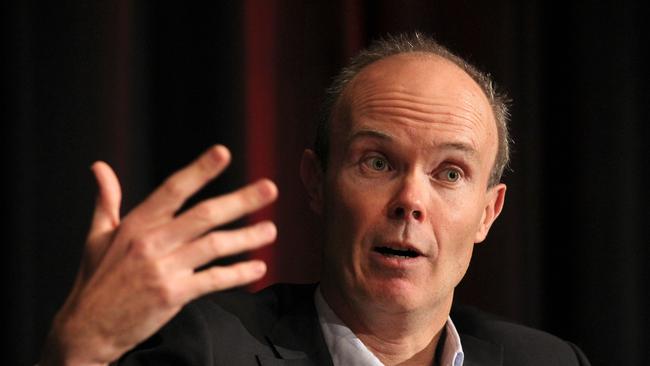Defensive sector stocks under threat
Deflationary events will see interest rates around the world fall over the long term, Hamish Douglass warned.

Deflationary events will see interest rates around the world fall over the long term and investors must be alert to the threats facing defensive sector stocks, Magellan Financial CEO Hamish Douglass told an investor briefing in Melbourne yesterday.
Mr Douglass expects interest rates to rise in the next three to four years, but says they’re not going back to 5 per cent or above. Instead, deflationary pressures, driven by the digital and sharing economy, will see rates actually fall over the long term.
“Our base case is a 50 per cent reduction in support from the major central banks in the next 14-15 months. And with that quantum of change you can’t believe interest rates and asset prices won’t be affected,” he said.
“But deflationary events mean rates may well come down in the long term and that creates a dilemma for investors.”
The deflationary pressures cited by Mr Douglass, who manages the group’s $9bn global fund, include the income gain brought about by the rise in driverless cars as well as the likes of Amazon driving down the price of goods.
In June, Amazon, the world’s second largest retailer, bought the largest fresh food business in the US, Whole Foods, and on day one dropped prices on some goods by 35-45 per cent.
“Jeff Bezos wants an affordable, fresh offering, he wants his Amazon Prime customers in these stores and he wants to use these stores to reduce his delivery costs. He wants to be the retailer of everything,” Mr Douglass said.
As Mr Bezos elbows his way into the grocery sector, Mr Douglass warned the game is changing for retailers and big brands, not least because of the deteriorating outlook for TV advertising.
“The television advertising industry will be the next one to fall,’’ he said. “This is $150bn-$180bn worth of revenue a year and it’s going to get disrupted by the rise of the streaming subscription services, like Netflix and Amazon Prime — which are starting to take viewership away and bidding up content costs — and the rise of ad-based video models from YouTube and Facebook. “I would argue that it may well be two companies that scoop up most of the $150bn-$180bn of revenue that’s sitting in television at the moment.”
Mr Douglass also urged caution as investors navigate the “speed bump” of rising rates in the near term, ahead of expected declining rates over the longer term.
“Standing still and repeating what you’ve done in the past may not work so well. Five years ago 45 per cent of our portfolio was in consumer staples and retailers, and we were 25 per cent invested in technology companies. Now 13 per cent of our holdings are in retail and consumer staples and we’ve got a 42 per cent holding in technology plays.
“Frankly, five years ago the defensive side of the portfolio, consumer staples and retailers was like shooting fish in a barrel. Now I’m shooting tadpoles in a barrel and it’s bloody hard because most of the pricing is very high in the low interest rate environment.
“As well, not everyone’s worked out that some of these businesses aren’t as great as they used to be; their prospects are deteriorating, so they may not be so defensive in the future.”
On global markets, Mr Douglass said while they might not be cheap they weren’t necessarily overvalued. “People are missing a big part of the equation when they say markets are expensive, and that’s interest rates.”
Historically a 5 per cent bond rate has been factored into the valuation of markets. But Mr Douglass’s base case over the long term is for rates of 4 per cent, meaning markets now would be just one multiple point more expensive than they have been on average.
“There are people who have gone 50 per cent cash and they’ve been there for some time, and I think they’re not asking themselves a fundamental macro question about where they expect interest rates to be in the long term,’’ he said. “I expect them to be lower in the next cycle and in the long term they could be materially lower than history would suggest.”




To join the conversation, please log in. Don't have an account? Register
Join the conversation, you are commenting as Logout